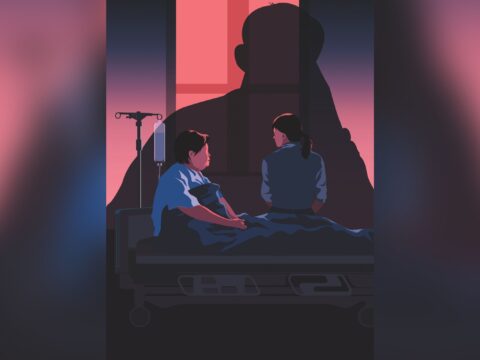For 15 years, Philippe Rochette has been on a mission to make eyeglasses affordable for everyone. His Montreal company, Le Bonhomme à lunettes (“The Glasses Guy”), works with 65 community centres throughout Quebec, where customers can buy frames for $69, with extra costs based on prescription needs. Rochette also donates $10 from each sale to community organizations.
Motivation: My childhood was not wealthy. We weren’t poor, but every penny was dedicated to something useful. I understand how difficult it is for most people to make the payments they need to make at the end of each month.
At the same time, I was attracted to something larger. When I was 25, I went to work in a Kibbutz in the middle of the desert in Israel. After travelling, studying communications and having part-time jobs, I began to see that there was a need in this market that was not addressed. All of that brought me to starting this business.
Beginnings: I began by selling glasses at the YMCA in Montreal where I was volunteering. I fixed the prices of my glasses to the welfare chart, so that they would be affordable. Then I went to knock on the doors of other centres, explaining my project — and it got them interested.
Necessity: When there’s fashion involved, there’s branding. Marketers sell you a dream, and that dream has a cost. But when you need glasses, you need glasses. You’re not going to take the bus instead of taking the car when you need glasses — you cannot operate in your life if you can’t see. There’s also a certain demand for glasses because they’re not something you can buy anywhere. Contrary to other things you can find in shops, only specialized people can sell them.
Impact: My prices have stayed exactly the same for the last 15 years. We sell generic brands, but we also have a lot of branded glasses. The trick is to buy them three months after everyone else. What happens to the fall collection when it’s spring? Well, the warehouses are stuck with what wasn’t sold, so the manufacturer is willing to let them go at a much lower price. When people go into shops, they often ask, “What’s new?” Nothing’s new. Nothing has changed. Your eyes, ears and nose are still in the same places.
More on Broadview:
- Longtime activist Maude Barlow on what gives her hope
- This advocate places ghost bikes at sites where cyclists have been killed
- Anamika Baijnath makes sure decision-makers listen to and stand up for children
Now people all over the place are copying what we’re doing. It’s an honour. They can provide a service that is useful to their communities — wherever they may be. That nobody did this before us is maybe a little surprising, but then again, there are so many public health questions that need to be addressed elsewhere. For instance, I don’t know if our model can be replicated with, say, dentists or orthopedists.
Future: We’re still looking for places to open new spots in different communities. People are interested. Recently, we opened our new online boutique so that it’s possible for people living far away from Montreal, who don’t have access to our services, to buy our frames.
We’ve been operating with a publicity budget of pretty much zero dollars since day one. It’s all word of mouth between the community centres and our clients. There are no sales objectives of the month. The way we work is really old school — and it’s important to me that we keep it that way.
***
This interview has been edited and condensed for length and clarity. It first appeared in Broadview’s June 2022 issue with the title “Philippe Rochette.”
Aysha White is a writer and fact-checker in Montreal.
















For me it has never been about the “fashion”, the cost of filling the prescription is the real cost. $100 for a frame and $235 for the lenses. (More if you want scratch resistance, and other “frills” such as tint)
I’ve learned to not get the frills. Over the years I’ve found that I don’t do anything to scratch my glasses but I do need tint in my old age. And, I keep my glasses longer than recommended. (Isn’t a recommendation simply a ploy to get me into the store more frequently?) However, I was perplexed that, being a minister, a position that requires quite a bit of reading and writing, the United Church insurance plan only covered $100.00 toward a pair of glasses.